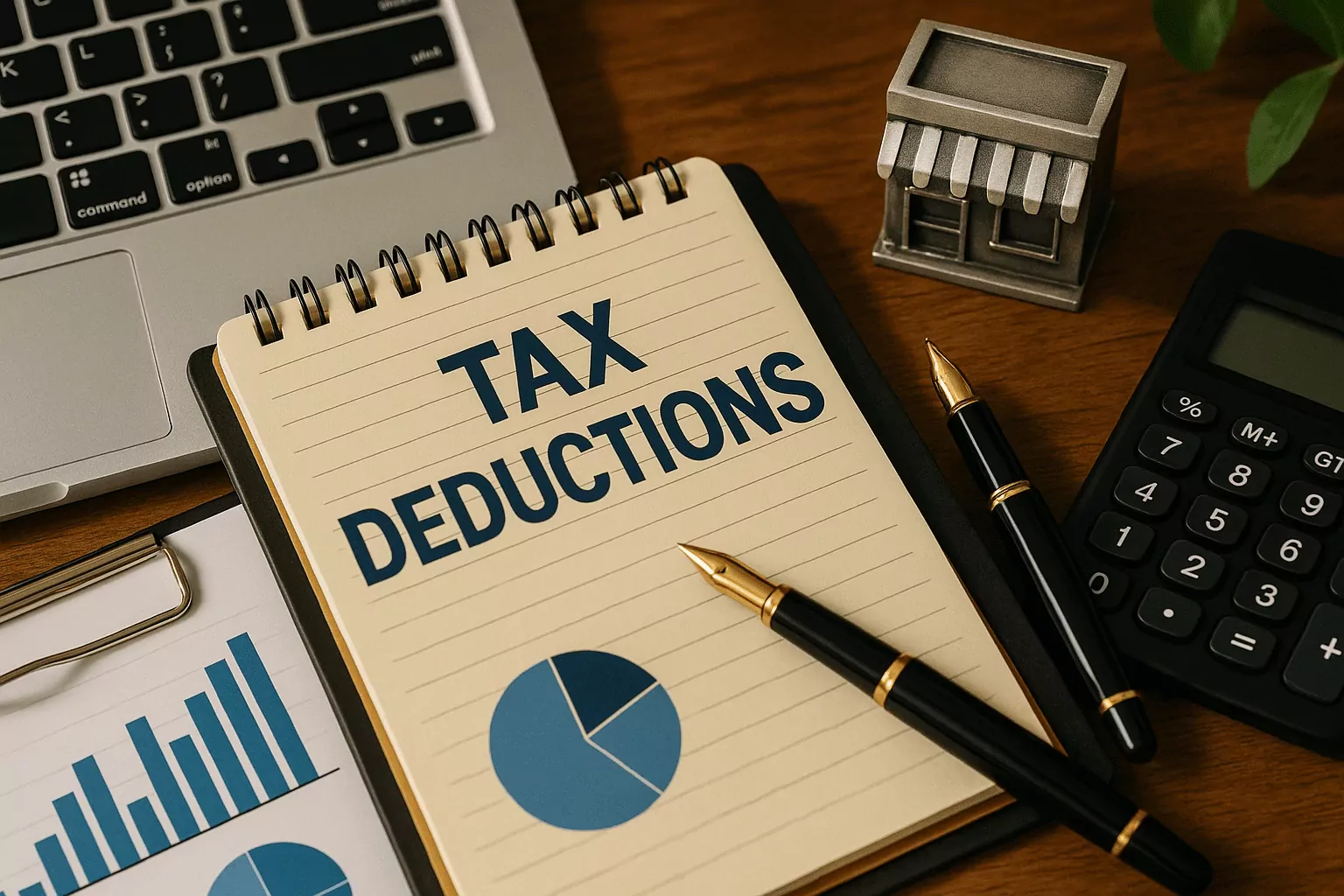Top Tax Deductions Every Small Business Owner Should Know
Unlock Key Tax Deductions to Boost Your Small Business Savings and Improve Financial Health

Introduction
Understanding tax deductions is essential for small business owners looking to maximize their profits and minimize their tax liabilities. Every dollar saved through tax planning can significantly impact your bottom line. By familiarizing yourself with the various tax deductions available, you can navigate tax season with confidence and clarity. This guide will help you uncover the most critical tax write-offs and deductible business expenses that every entrepreneur should know. From operational costs to home office deductions, these insights will ensure you keep more of your hard-earned money. Join us as we explore the essential tax benefits for small businesses that can lead to substantial tax savings for entrepreneurs.
Main Content
1. Home Office Deduction
One of the most beneficial tax deductions for small business owners is the home office deduction. If you operate your business from your home, you may be eligible to deduct a portion of your home expenses. This includes mortgage interest, utilities, and even internet costs, proportional to the space used for your business. The IRS allows you to calculate this deduction using two methods: the simplified option or the regular method, which requires more detailed record-keeping.
For instance, if your home office occupies 10% of your home's total square footage, you may deduct 10% of eligible home expenses. This deduction can provide significant savings and is especially valuable for freelancers and small business owners who primarily work from home. However, it's essential to maintain accurate records and only deduct expenses directly related to your business activities.
To claim this deduction, you must meet specific criteria set by the IRS, such as regularly using your home office exclusively for business purposes. By understanding the home office deduction, you can effectively reduce your taxable income and increase your overall tax savings.
2. Business Meal Expenses
Another valuable write-off for small business owners is the deduction for business meals. When you entertain clients, prospects, or perform business-related activities over a meal, a portion of these expenses can be deducted from your taxable income. Currently, the IRS allows a 50% deduction for meals that are directly related to your business operations.
For example, if you take a client out for lunch and the total bill is $100, you can deduct $50 from your taxable income. It's crucial to keep detailed records, including receipts and notes about the purpose of the meal, to substantiate your claims. This not only enhances your tax planning strategy but also encourages relationship building with clients and partners.
Moreover, in 2021, the IRS temporarily increased the deduction for restaurant meals to 100%, aiming to stimulate the economy during the pandemic. Understanding and utilizing this deduction can significantly impact your tax savings for entrepreneurs, making every business meal an opportunity for financial relief.
3. Business Travel Expenses
Travel expenses are another significant area where small business owners can find tax deductions. If your business requires you to travel for meetings, conferences, or client visits, you can deduct costs related to transportation, lodging, and meals. Keep in mind that these expenses must be ordinary and necessary for your business operations.
For instance, if you travel to a conference and incur costs for airfare, hotel, and meals, you can deduct those expenses on your tax return. It's essential to maintain thorough documentation, including itineraries, receipts, and notes about the business purpose of the trip. Not only does this help in tax planning, but it also provides clarity and organization for your financial records.
Additionally, if you use your personal vehicle for business travel, you can either deduct the actual expenses or use the standard mileage rate set by the IRS. By leveraging these deductions, you can significantly reduce your taxable income and enjoy the tax benefits for small businesses.
4. Equipment and Supplies
The costs associated with purchasing equipment and supplies for your business are another category of deductible business expenses. This includes everything from computers and printers to office supplies like paper and ink. Understanding how to categorize and deduct these expenses can lead to substantial tax savings.
For small business owners, the IRS allows immediate expensing of certain assets under Section 179. This means you can deduct the full purchase price of qualifying equipment in the year it was purchased rather than depreciating it over several years. For example, if you buy a new computer for $1,000, you can deduct the entire amount from your taxable income in that year.
However, there are limits and qualifications, so it's wise to consult a tax professional to ensure you maximize your deductions effectively. By taking advantage of these deductions, you can lower your overall tax burden and invest more in your business growth.
Conclusion
In conclusion, understanding the various tax deductions available for small business owners is crucial for effective tax planning. From home office deductions to business travel expenses, these write-offs can significantly reduce your taxable income and enhance your financial health. By staying informed and maintaining precise records, you can optimize your tax savings and keep more of your earnings. For personalized guidance and expert assistance with navigating your tax deductions, contact Premier Tax and Business Services at 314-669-7300 or visit us at www.premiertbs.com. Your financial success is our priority!
Frequently Asked Questions
What are the most common tax deductions for small businesses?
Small businesses can benefit from a variety of tax deductions, including home office expenses, business meals, travel expenses, and equipment purchases. These deductions help reduce taxable income and ultimately enhance cash flow. It's crucial to keep accurate records and receipts to substantiate these claims. Each deduction has specific requirements, so understanding them is key to maximizing tax savings.
How can I maximize my tax deductions?
To maximize tax deductions, keep detailed records of all business-related expenses throughout the year. Categorize your expenses accurately and consult with a tax professional to identify all potential deductions. Utilizing accounting software can also help streamline expense tracking and ensure no deduction is overlooked. Additionally, staying informed about changing tax laws can help you take advantage of new opportunities for savings.
Are all business expenses deductible?
Not all business expenses are deductible. To qualify, expenses must be ordinary and necessary for your business operations. Personal expenses or those not directly related to your business activities typically cannot be deducted. It's essential to differentiate between personal and business expenses to avoid any issues with the IRS. Consulting with a tax advisor can help clarify which expenses are deductible.

